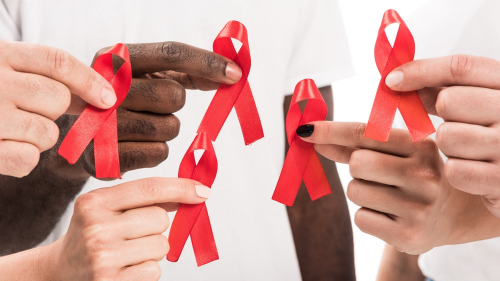鍼灸師募集|未経験歓迎・正社員・パート・アルバイト多数
Beware of These Early Symptoms of HIV
HIV (Human Immunodeficiency Virus) is a chronic infection that weakens the immune system by attacking and destroying the body's T cells. Once a person is infected, they remain HIV-positive for life. The virus invades healthy cells, rapidly reproduces, and destroys the cells, impairing the body's ability to defend against infections. If left untreated, HIV can progress to AIDS (Acquired Immunodeficiency Syndrome), the final and most severe stage of the infection.
HIV (Human Immunodeficiency Virus) is a chronic infection that weakens the immune system by attacking and destroying the body's T cells. Once a person is infected, they remain HIV-positive for life. The virus invades healthy cells, rapidly reproduces, and destroys the cells, impairing the body's ability to defend against infections. If left untreated, HIV can progress to AIDS (Acquired Immunodeficiency Syndrome), the final and most severe stage of the infection.

HIV is highly contagious and can be transmitted through contact with body fluids such as blood, semen, vaginal fluids, breast milk, pre-ejaculate, and rectal fluids. It can be transmitted through unprotected sex, from mother to child during pregnancy or childbirth, or through blood transfusions and sharing needles.
Early Symptoms of HIV
The first signs of HIV infection often appear between 2 and 8 weeks after exposure and can be similar to those of a flu or cold. These early symptoms may include:
- Fatigue
- Muscle and joint pain
- Headache
- Sore throat
- Swollen lymph nodes
- Fever
- Rash
- Diarrhea
- Oral yeast infections
- Genital ulcers
- Night sweats
These symptoms can be mild and may disappear after a few weeks, but they signify the body's initial reaction to the virus. However, the virus continues to multiply and damage the immune system, often without causing further noticeable symptoms.
Symptoms Specific to Women
While the early symptoms of HIV are similar for both men and women, women may experience additional symptoms such as:
- Changes in the menstrual cycle (lighter, heavier, or missed periods)
- Abdominal pain (upper or lower stomach) or pelvic inflammatory disease
- Abnormal vaginal discharge
- Frequent vaginal yeast infections
- Pain during urination or intercourse
These symptoms may be more pronounced in women and can sometimes be mistaken for other conditions.
The Importance of Testing
It's crucial to note that after the early symptoms subside, HIV can remain dormant in the body, continuing to damage the immune system without causing noticeable physical discomfort. In some cases, there may be no symptoms at all for years, despite the virus actively multiplying.
The only way to confirm whether a person is infected with HIV is through blood testing. Regular testing is essential for anyone who is at risk of exposure, as early diagnosis and treatment can help manage the virus and prevent it from progressing to AIDS.
Conclusion
If you suspect you may have been exposed to HIV or are experiencing any of the early symptoms, it is important to get tested as soon as possible. Early detection, followed by appropriate medical care, can help manage the infection and improve quality of life.











